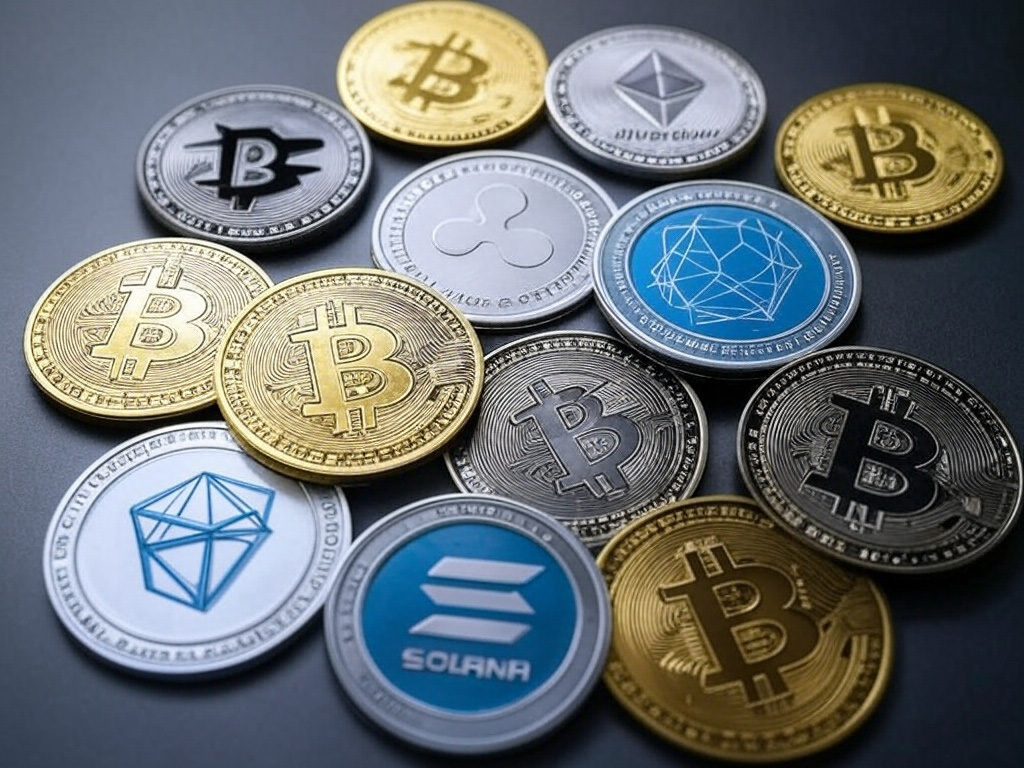- Eric Trump warned that traditional banks risk extinction within 10 years unless they adapt to the low-cost efficiency and advantages of blockchain and cryptocurrency, criticizing the slow and costly nature of systems like Swift.
- Speaking in Dubai, he underlined the boom of the United Arab Emirates as an cryptocurrency center and recommended decentralized finance (DEFI), which allows instant transactions and without cost of peer-to-peer, as an alternative greater than the conventional bank.
- Trump accused the banking system of promoting ultra-rich and expected bitcoin could reach $ 1 million, urging financial institutions to adopt digital currencies or to deal with obsolescence.

Eric TrumpExecutive vice-president of the Trump organization, expressed a striking warning to traditional banks: adapting to the disturbing force of cryptocurrency and blockchain technology or faces obsolescence in a decade. Addressing Dan Murphy from CNBC to Dubai on Tuesday, Trump criticized the ineffectiveness of the current financial system, calling it slow, cost and outdated. His remarks, in the context of the rise of the United Arab Emirates as a global cryptocurrency center, reflect a growing feeling among the defenders of digital currency that decentralized finance (DEFI) is ready to reshape the financial landscape.
Trump’s criticism has targeted the Society for Worldwide Interbank Financial Telecommunication (SWIFT), the world messaging network for international transactions, which he described as an “absolute disaster”. He argued that Blockchain technology offers solutions superior to financial transactions, allowing instant and low-cost and peer-to-peer transfers without the need for traditional banking intermediaries. “You can open a DEFI application now, you can open any cryptocurrency application, and you can send money, wallet to the wallet, instantly, without spending, without variability,” he said. This efficiency, he noted, strongly contrasts with the high transaction processing and the account costs which have long been a cornerstone of bank income.
The water, where Trump was a frequent visitor in the expansion of Trump brand real estate projects, has become a leader in the adoption of cryptocurrency. The gradual regulatory framework of the emirate and the investment in blockchain infrastructure attracted global attention, positioning it as a test field for financial innovation. Trump’s comments align with this change, emphasizing the potential of digital currencies to democratize finance. During the Bitcoin Mena 2024 conference in Abu Dhabi in December, he predicted that Bitcoin (BTC) would climb to $ 1 million, highlighting his upward prospects on the asset class.
Beyond technological criticism, Trump has supervised his plea for cryptocurrency in response to systemic inequalities in the traditional bank. He accused the system of promoting ultra-wrinkle and of being “armed” against everyday Americans, in particular those without substantial wealth or those associated with political movements such as “making America again large”. This perspective, he explained, led his commitment to the world of cryptography, which he considers a counter-inforction to centralized financial control. The DEFI platforms, by allowing direct transactions with competitive or zero costs, dispute the domination of banks and offer users greater financial autonomy.
The banking sector, on the other hand, is in power with the rise of digital currencies. Large institutions like JP Morgan (JPM) and Goldman Sachs (GS) responded by launching blockchain networks and crypto negotiation offices to grasp a growing market share. These movements report recognition of the cryptocurrency stay, but Trump warned that additional adaptations may not be enough. “If the banks do not look at what is coming, they will disappear in 10 years,” he said, highlighting the existential threat posed by decentralized finance.
The broader implications of Trump’s position resonate on a global scale while cryptocurrencies gain ground. Blockchain’s ability to rationalize cross -border payments, reduce costs and improve transparency has aroused interests of governments, companies and individual investors. However, challenges such as regulatory uncertainty, security problems and market volatility remain obstacles to general adoption. Despite this, the momentum behind digital currencies continues to build, with regions such as water leading the charge.
Trump’s vision of a financial future based on blockchain is not unprecedented. The rapid growth of DEFI platforms, which facilitate loans, loan and trade without intermediaries, has already disturbed traditional banking models. By taking advantage of intelligent contracts and distributed books, these platforms offer users an unprecedented control over their assets. For consumers frustrated by high costs and slow transaction times, the call of these systems is clear.
As the cryptocurrency industry is changing, pressure on banks to innovate is intensifying. While some institutions adopt blockchain, others remain cautious, distrusting what they perceive as risks associated with a decentralized paradigm. Trump’s warning serves as an appeal to action, urging the financial sector to rethink its role in an increasingly digital economy. The question of whether the banks can adapt quickly to avoid the spell it predicts remains an open question, but the trajectory of the cryptocurrency suggests that the time of complacency has passed.
Wallstreetpit does not provide investment advice. All rights reserved.




